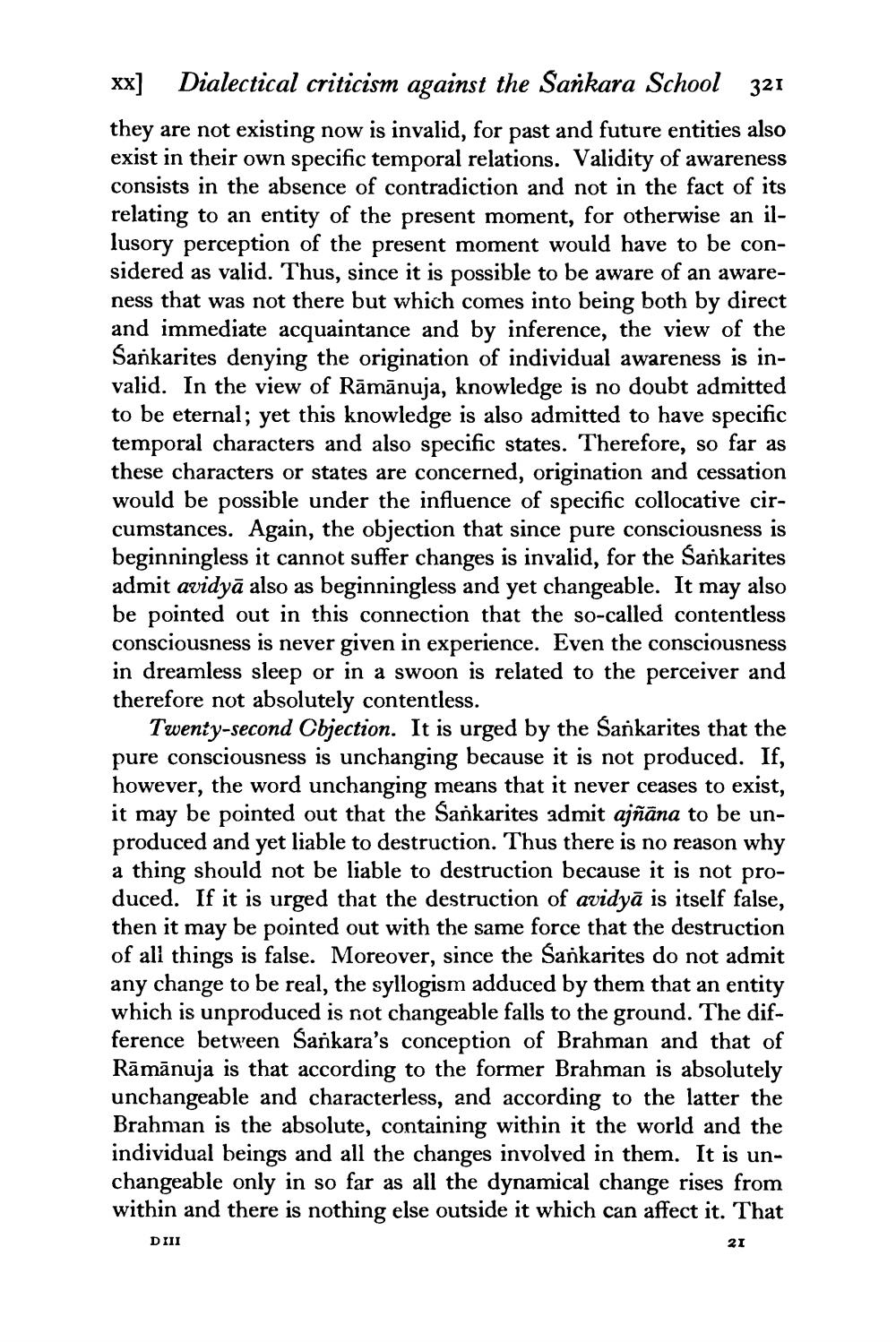________________
xx] Dialectical criticism against the Sankara School 321 they are not existing now is invalid, for past and future entities also exist in their own specific temporal relations. Validity of awareness consists in the absence of contradiction and not in the fact of its relating to an entity of the present moment, for otherwise an illusory perception of the present moment would have to be considered as valid. Thus, since it is possible to be aware of an awareness that was not there but which comes into being both by direct and immediate acquaintance and by inference, the view of the Sankarites denying the origination of individual awareness is invalid. In the view of Rāmānuja, knowledge is no doubt admitted to be eternal; yet this knowledge is also admitted to have specific temporal characters and also specific states. Therefore, so far as these characters or states are concerned, origination and cessation would be possible under the influence of specific collocative circumstances. Again, the objection that since pure consciousness is beginningless it cannot suffer changes is invalid, for the Šankarites admit avidyā also as beginningless and yet changeable. It may also be pointed out in this connection that the so-called contentless consciousness is never given in experience. Even the consciousness in dreamless sleep or in a swoon is related to the perceiver and therefore not absolutely contentless.
Twenty-second Cbjection. It is urged by the Sankarites that the pure consciousness is unchanging because it is not produced. If, however, the word unchanging means that it never ceases to exist, it may be pointed out that the Sankarites admit ajñāna to be unproduced and yet liable to destruction. Thus there is no reason why a thing should not be liable to destruction because it is not produced. If it is urged that the destruction of avidyā is itself false, then it may be pointed out with the same force that the destruction of all things is false. Moreover, since the Sankarites do not admit any change to be real, the syllogism adduced by them that an entity which is unproduced is not changeable falls to the ground. The difference between Sankara's conception of Brahman and that of Rāmānuja is that according to the former Brahman is absolutely unchangeable and characterless, and according to the latter the Brahman is the absolute, containing within it the world and the individual beings and all the changes involved in them. It is unchangeable only in so far as all the dynamical change rises from within and there is nothing else outside it which can affect it. That
DIII
21




